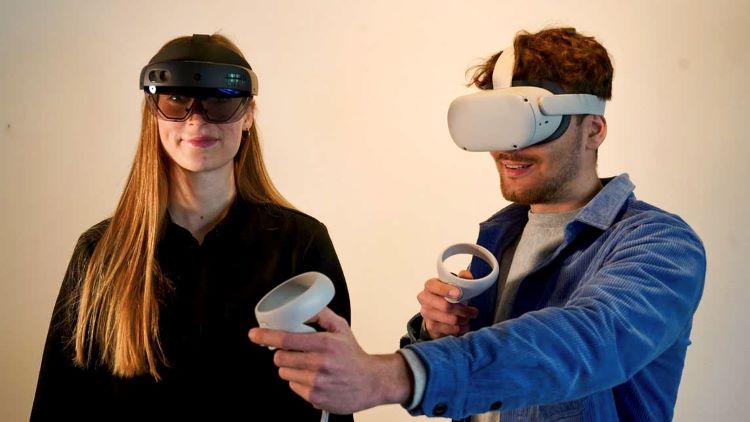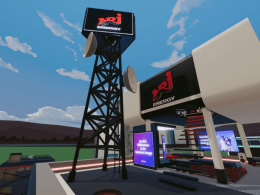Augmented (AR), mixed and virtual reality (VR) applications are increasingly penetrating all areas of private and professional life. Specialised professionals are a growing need in the economy, which the University of Applied Sciences of the Grisons is responding to with a new part-time continuing education programme.
More and more trained specialists are needed to develop AR and VR applications. However, there are still hardly any corresponding further training programmes. In the CAS Augmented and Virtual Reality, which the University of Applied Sciences Graubünden will be offered for the first time in autumn 2021, participants will learn in 4 modules what it takes to successfully design, plan and implement XR applications.

The module leaders are all XR professionals and have many years of experience in the implementation of AR and VR projects - whether on the company or agency side. Other experts will contribute their expertise in guest presentations.
"It is important to us that the participants can try out and test many things themselves. This is the only way to unlock the fascination, reveal potential and generate new ideas for exciting realisations," says Daniel Gremli, co-founder of the VR and AR agency Bandara and module leader.
The right mindset is just as important as expertise. "Those who design for XR are very often breaking new ground. People know how to operate a computer mouse or swipe on a smartphone. But in 3D space, we have to rethink, try out and test a lot of things," explains module leader Urs Langenegger.
From the module leader's perspective: What makes extended reality so fascinating?
Changing customer requirements due to the pandemic
Corona has changed our everyday lives and our habits. Many things will remain the same, even if a certain "normality" returns at some point. Personal contact on site has become more valuable. But we have also learnt to appreciate the convenience of virtual communication. "When designing the programme, we tried to incorporate these two principles and use them to develop a training setting that meets our own expectations of modern post-corona continuing education," says Markus Jost, lecturer at the UAS Graubünden and module leader.
Face-to-face events are used sparingly and efficiently. In addition, interactive webinars are held remotely. Online lectures on demand can be viewed whenever participants find the time. When modules 3 and 4 focus more and more on the specific technical implementation of XR applications, guided tutorials are used, which can be worked through at the student's own pace.
The new offer is supported by Virtual Switzerlandthe national network for immersive technologies. "XR is a rapidly growing market. Initiatives such as this new CAS make a significant contribution to the competitiveness of Switzerland as a business location. I am therefore very pleased that the University of Applied Sciences Graubünden is taking on a pioneering role here and creating further education opportunities", Laetitia Bochud, Director of Virtual Switzerland.
Source: grheute









